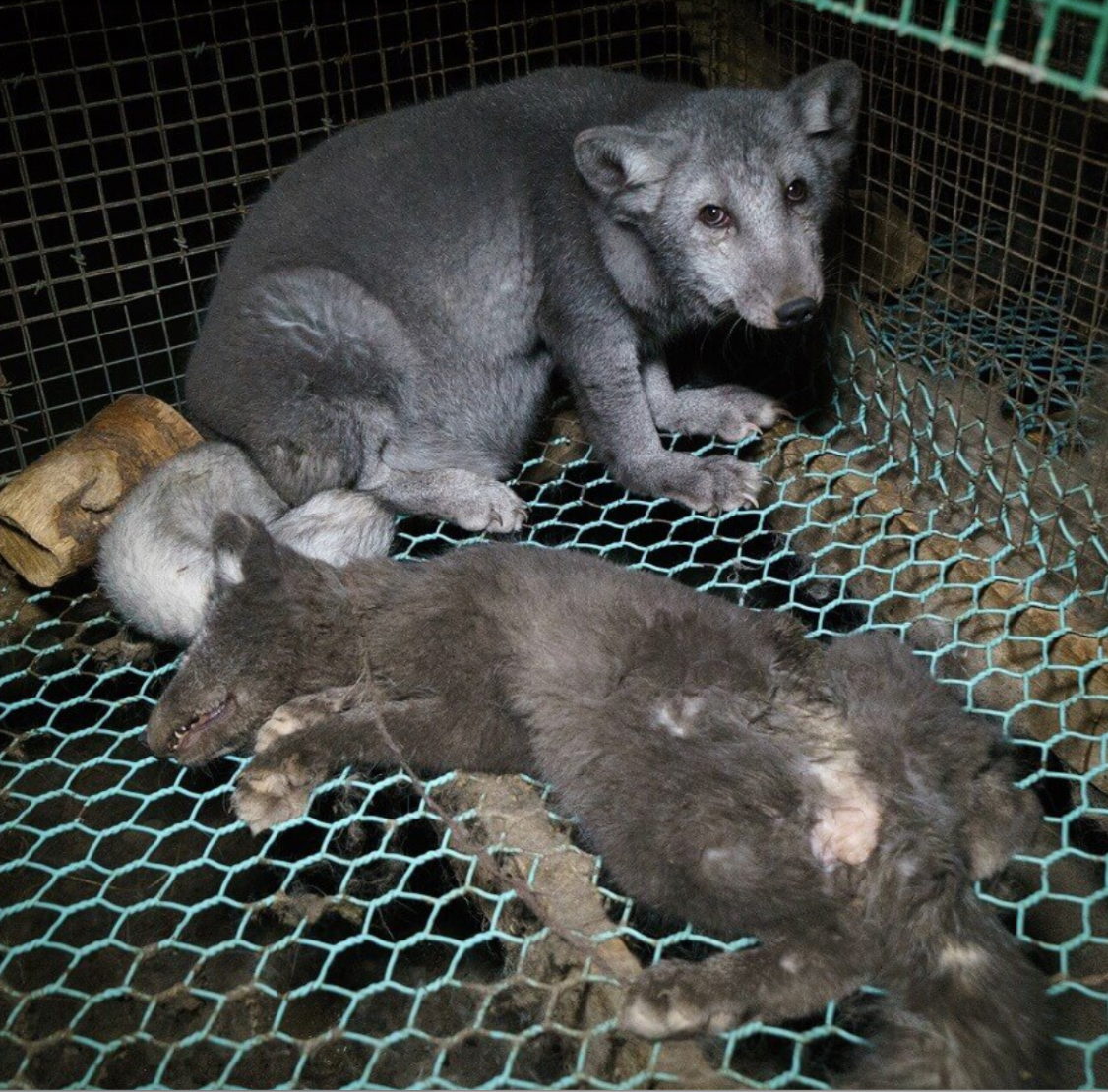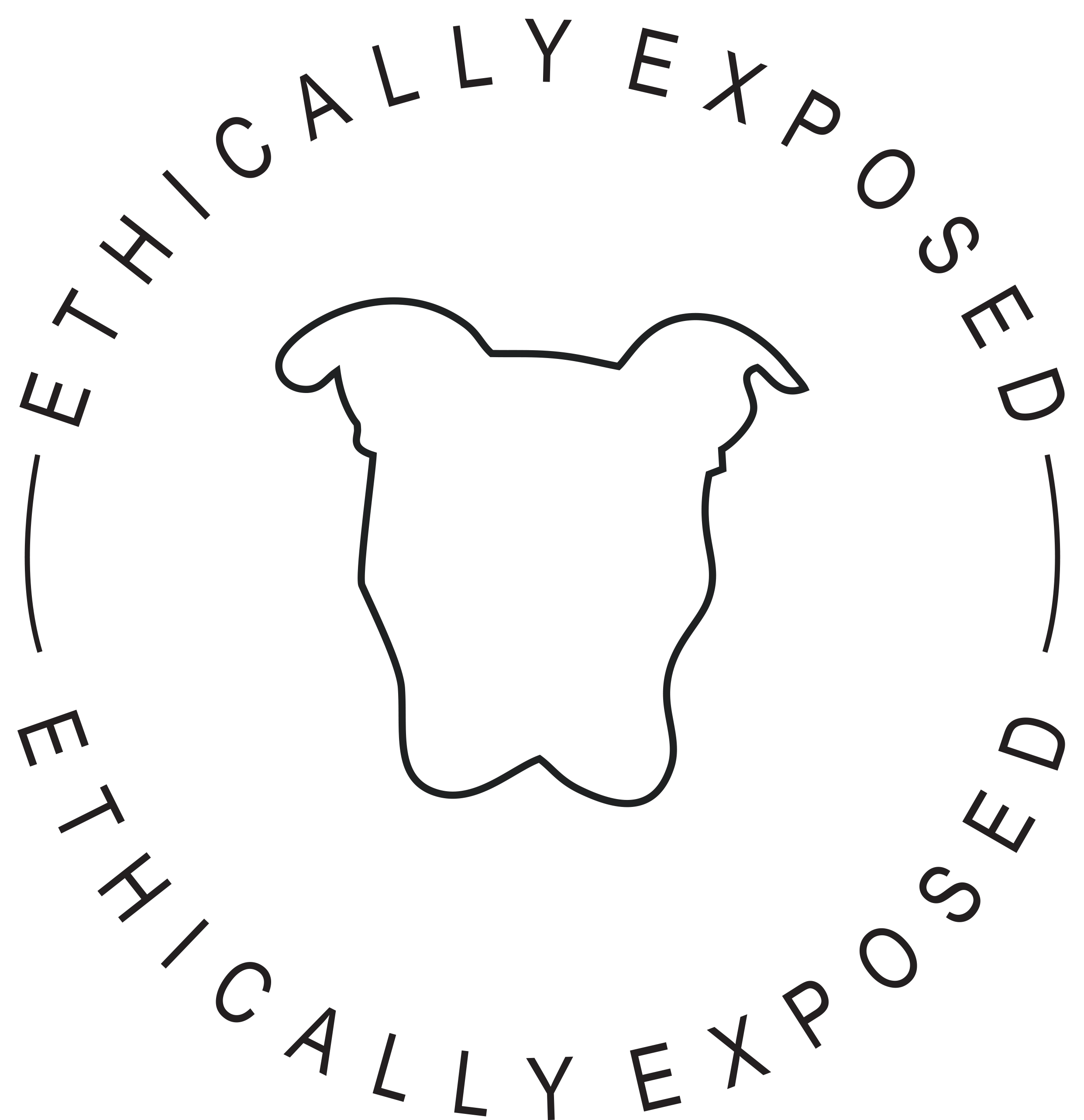Fashion's Next Step
Lauren Breuer
De Fash'Ste
The fashion industry has been facing harsh criticisms in recent years over issues such as animal rights, worker exploitation, environmental impact, and lack of transparency. The pressure for fashion brands to be accountable and responsible for their actions is higher than ever, and people want to know the truth behind the industry’s practices.
One of the key areas where fashion brands are being held accountable is the level of transparency and ethical sourcing standards in clothing supply chains.

ETHICALLY EXPOSED
Brands are responding by implementing traceability systems and ethical sourcing policies using QR codes, in addition to providing sustainability reports. Fashion has released reports to address the sustainability concerns of consumers. Although this was a good initiative, there is a lack of validity in the claims they make. However, one way this could be solved is through the use of Blockchain. Blockchain technology can create transparent and secure supply chains, allowing consumers to trace the journey of their clothes from raw materials to finished products in real-time. So, not only does it aid in transparency, but it supports the claims being made in sustainability reports putting the value of judgment in the hands of consumers.
Companies are finding that consumers and regulators are now holding them accountable for the treatment and working conditions of all their employees and subcontractors. They are now facing intense scrutiny on labor practices throughout their supply chains, including safe working conditions, paying a living wage, and ensuring that workers have the right to organize and collectively bargain… This is something that was not much of a concern before, but with changing government and consumer attitudes, it is now a huge concern for companies. A prime example of the dangers of poor working conditions was during the Rana Plaza Collapse. Rana Plaza was a factory that manufactured clothing for leading brands including H&M, Nike, ZARA, Walmart, The Children’s Place, and more. Prior to the collapse of the building, workers spotted cracks in the walls of the building a day before, and they were told to return to work the following day as usual. This resulted in a collapse where 1,100 people died and thousands more were injured. The use of blockchain could have prevented such an event specifically by providing an avenue for holding companies accountable for their practices and how they go about producing products. When properly
applied, potentially via immutable digital photograph or video evidence, it would have ensured labor standards and building quality. If consumers knew about all of those aspects, there would potentially be an inclination to not purchase from these unethically performing companies.
Environmental impact is also a major issue for fashion brands. Consumers are increasingly concerned about the carbon footprint and waste generated by the fashion industry, as it is the 3rd largest polluter in the world. Documentaries, and interviews, such as SLAY and the True Cost, have uncovered the truth of the impact the fashion industry has on Earth, from pouring dyes into the ocean to fast fashion promoting overconsumption. Consumers are demanding sustainable and circular fashion. According to this research report by consulting firm Bain & Co, 15% of fashion consumers are concerned about sustainability, and this figure is projected to go as high as 50% within the next few years. Brands are responding by implementing closed-loop production systems, using sustainable materials, and reducing waste through innovative textiles, design, and production methods as a result. Brands that do not comply with such are may lose loyal customers and therefore revenue, but more importantly, they are participating in the destruction of the planet. Because the world is more aware than ever of fashion’s impact, companies that fail to comply will simply run the potential risk of losing customer trust and loyalty. People will put their money where the consumer demand is rather than brand value. According to Harvard Business School, “There are still very, very few brands who know where their stuff comes from in the supply chain, and even fewer of them have entered into active relationships with those suppliers to reduce their carbon footprint,” says environmental scientist Linda Greer.” Not only is this shocking, but it clearly depicts the reality of sustainable practices, leading to the fact that this is a difficult journey for many brands to
achieve creating this obstruction of transparency. Accountability also extends to the treatment of animals in the fashion industry. Consumers are increasingly aware of the cruelty that goes on with the production of animal-based materials such as fur, leather, wool, and dyes and are demanding cruelty-free alternatives. Brands are being held responsible for the ethical treatment of animals, and are starting to acknowledge that animals are sentient beings with minds of their own. Major brands such as Louis Vuitton, Guess, and Oscar De la Renta, just to name a few, have no choice but to change their ways and are responding by implementing animal welfare policies, as well as using alternative materials to satisfy consumer and celebrity concerns. Oscar De la Renta asked Billie Eilish to wear one of his dresses to the Met Gala, and she stated that she would only do so if he agreed to ban the use of fur. He did.
The accountability demands on fashion brands in 2023 are higher than ever. Consumers are demanding greater transparency and responsibility from the industry. Brands that fail to meet these expectations are starting to lose customers and damage their reputation, while those that embrace sustainability, ethical sourcing, and fair labor practices are likely to thrive because they are able to show proof through the use of Blockchain, rather than bold but empty claims. As consumers become more informed and engaged, the fashion industry will continue to change and adapt, insisting on a kinder world with more respect for the animals we use and the people who create the goods we need. Blockchain fosters this change and successfully helps us launch into the world of transparency.
